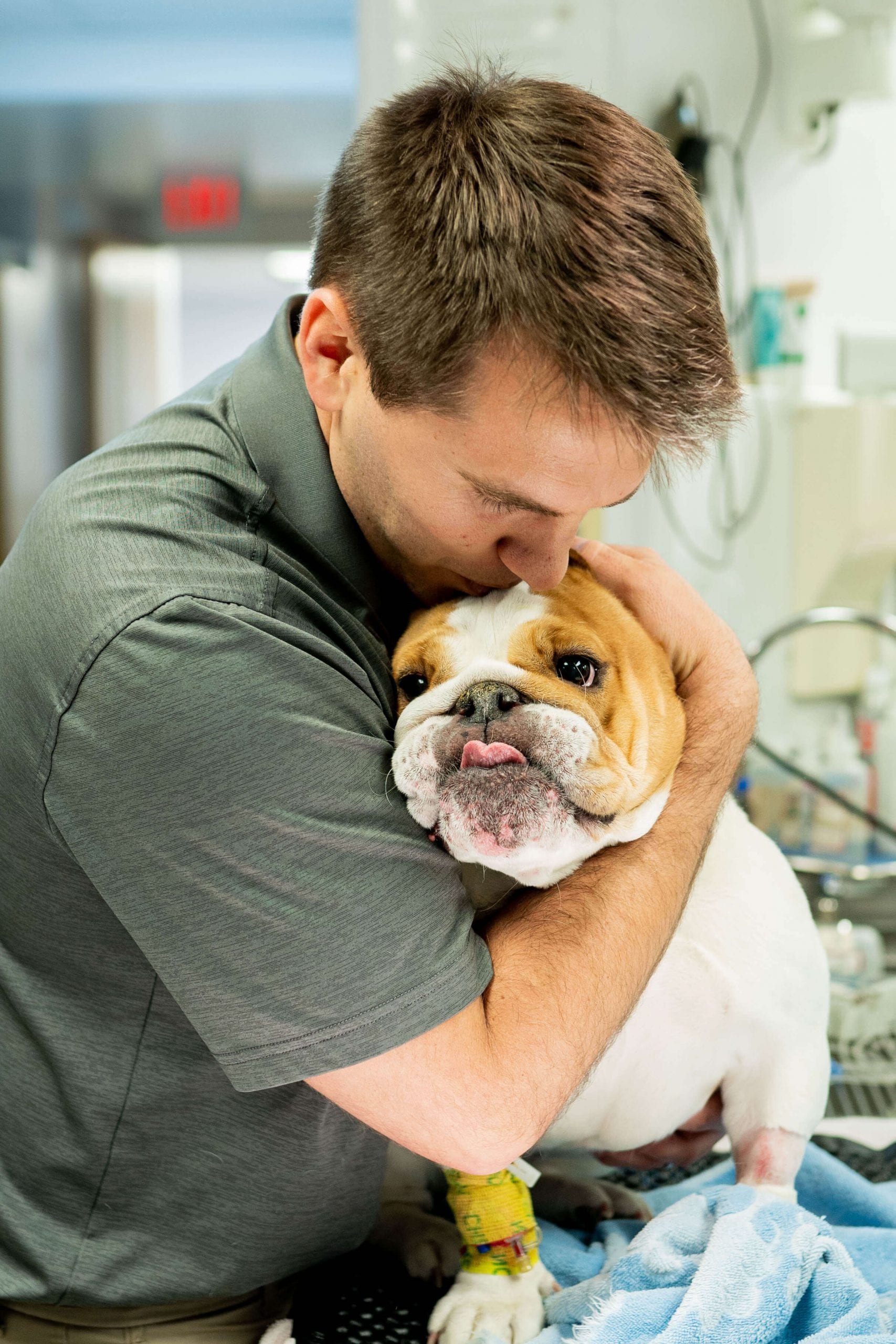Thanksgiving must be a pet’s favorite holiday. All anyone  is expected to do is eat delicious food and spend time with the people they love, all while watching football. What a perfect combination for the special pets in our lives! However, as always, it is important to keep your pet’s safety in mind. There are many foods your pet should avoid this Thanksgiving.
is expected to do is eat delicious food and spend time with the people they love, all while watching football. What a perfect combination for the special pets in our lives! However, as always, it is important to keep your pet’s safety in mind. There are many foods your pet should avoid this Thanksgiving.
Cooked Bones
Giving your dog a bone is a novel concept. It seems only natural that your pet should be given the turkey bones to chew on. Bones can be extremely dangerous for your pet to play with and eat. While chewing, they can splinter and cause injury to your pet’s mouth. The splinters or larger pieces of bone can be easily swallowed, and can cause serious damage to your pet’s internal organs and digestive tract. This can not only be extremely expensive to treat, but is often fatal. Keep your pets safe from themselves by throwing away your turkey bones where they have no chance of getting into them.
Turkey Skin
It’s tempting to slip your pet a tasty treat like turkey skin. However, turkey skin poses many threats to your pet’s health. The turkey’s seasoning can include ingredients that are

harmful to your pet, including garlic, onion, and salt. Garlic contains sulfides that are toxic to dogs. If your dog gets into garlic, it can cause many health problems including anemia. Onions are even more toxic than garlic. It is important to note that cooking garlic and onions does not reduce their toxicity.
Butter and other marinades are used while cooking turkey. This adds to the high fat content of the already fatty turkey skin. Pets have a difficult time digesting fatty foods. Consuming fatty foods can cause vomiting, diarrhea, and lethargy. In bad cases, consumption of very fatty foods can lead to pancreatitis.
Spices and Herbs
Some holiday spices can be dangerous for your pet. Nutmeg can cause seizures and central nervous system problems if eaten by your pet. Nutmeg is commonly used to add flavor to sweet potatoes and pumpkin. When searching for these foods for your pet at the grocery store, be sure that you purchase them unseasoned. Pay close attention to the packages that they come in, as it can be easy to purchase pumpkin pie puree instead of plane pumpkin puree and end up accidentally harming your pet.
Holiday spices such as sage contain essential oils that are dangerous for your pets. Ingesting sage can cause gastrointestinal problems, including stomach upset, vomiting, and diarrhea.
Toxicosis
Walnuts, macadamia nuts, and chocolate are popular during the holidays, but be sure that they aren’t popular with your pet! Ingesting these nuts and sweets, particularly macadamia nuts and chocolate, can cause toxicosis. VetStreet recommends looking out for a number of symptoms if you suspect toxicosis. Among them are vomiting and diarrhea, which is common with stomach upset. Panting, anxiousness, restlessness, and pacing can indicate that your pet is uncomfortable or in pain. Finally, you will see seizures or tremors. Toxicosis is not something to wait out—take your pet to an emergency animal hospital immediately if you suspect they have ingested anything that can cause toxicosis.
the holidays, but be sure that they aren’t popular with your pet! Ingesting these nuts and sweets, particularly macadamia nuts and chocolate, can cause toxicosis. VetStreet recommends looking out for a number of symptoms if you suspect toxicosis. Among them are vomiting and diarrhea, which is common with stomach upset. Panting, anxiousness, restlessness, and pacing can indicate that your pet is uncomfortable or in pain. Finally, you will see seizures or tremors. Toxicosis is not something to wait out—take your pet to an emergency animal hospital immediately if you suspect they have ingested anything that can cause toxicosis.

